.png)
An estimated 120 million tons of cattle and pig
liquid manure are annually produced in Germany, of which only one-third is
transported off-site for energy and nutrient recovery in incinerators or
anaerobic digesters, while two-thirds remain untreated on farms before being applied
to arable land and grassland to provide nutrients essential for plant growth.
On-farm managed
liquid manure is neither used for heat and electricity generation, nor are its contaminants
removed. The most common liquid manure-based contaminants nitrate, antibiotics, heavy metals, and antibiotic-resistant
bacteria enter liquid manure
through animal husbandry, concentrate or are even formed during
on-farm storage. In addition, fermentative processes during liquid
manure storage result in significant emissions of greenhouse gases such as
methane, carbon dioxide, and nitrous oxide. Thus, on-farm liquid manure management currently contributes to several environmental hazards,
including contamination of groundwater and eutrophication of soil (e.g.
nitrate), acceleration of climate change (i.e. by greenhouse gas emissions), accumulation
of contaminants in the food chain (e.g. heavy metals and antibiotics), and the
spread of antibiotic resistance. Ongoing intensification of
livestock farming worldwide will increase the amount of liquid
manure and exacerbate the associated environmental problems.
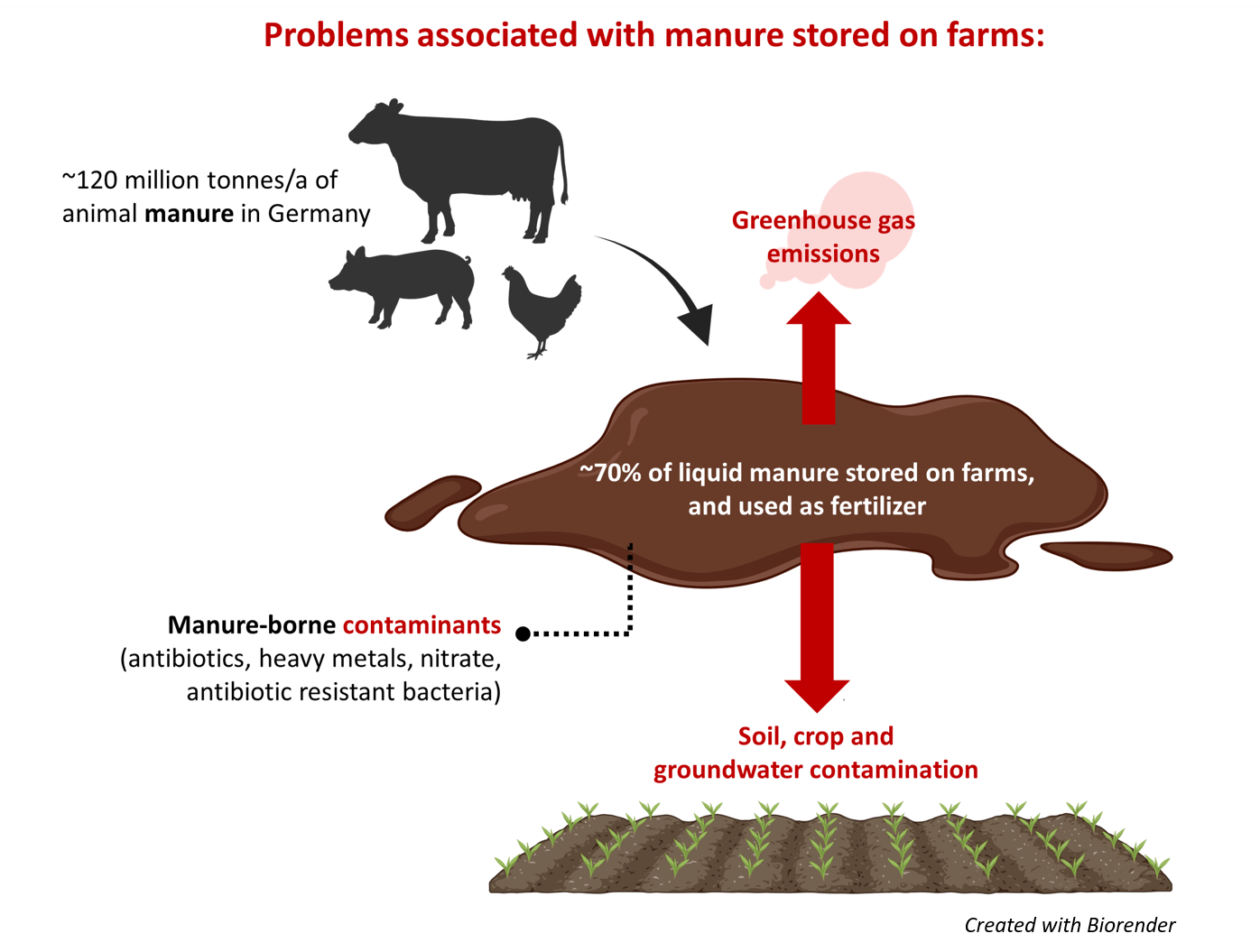
SmartManure Approach and Novelty
SmartManure develops solutions for on-farm liquid manure management as an essential path to sustainable agriculture. Although there are technological concepts for recovery of nutrients and energy production through incineration or anaerobic digestion, they largely exist for off-site liquid manure management. Still, these are energy- and cost-intensive and do not include the removal of inorganic (e.g., heavy metals) and organic contaminants (e.g., antibiotics), nor the reduction of greenhouse gas emissions. SmartManure will combine advanced technologies with ecosystem engineering to transform on-farm liquid manure into an environmentally friendly economic resource, while promoting sustainable agriculture by establishing more resilient ecosystems.
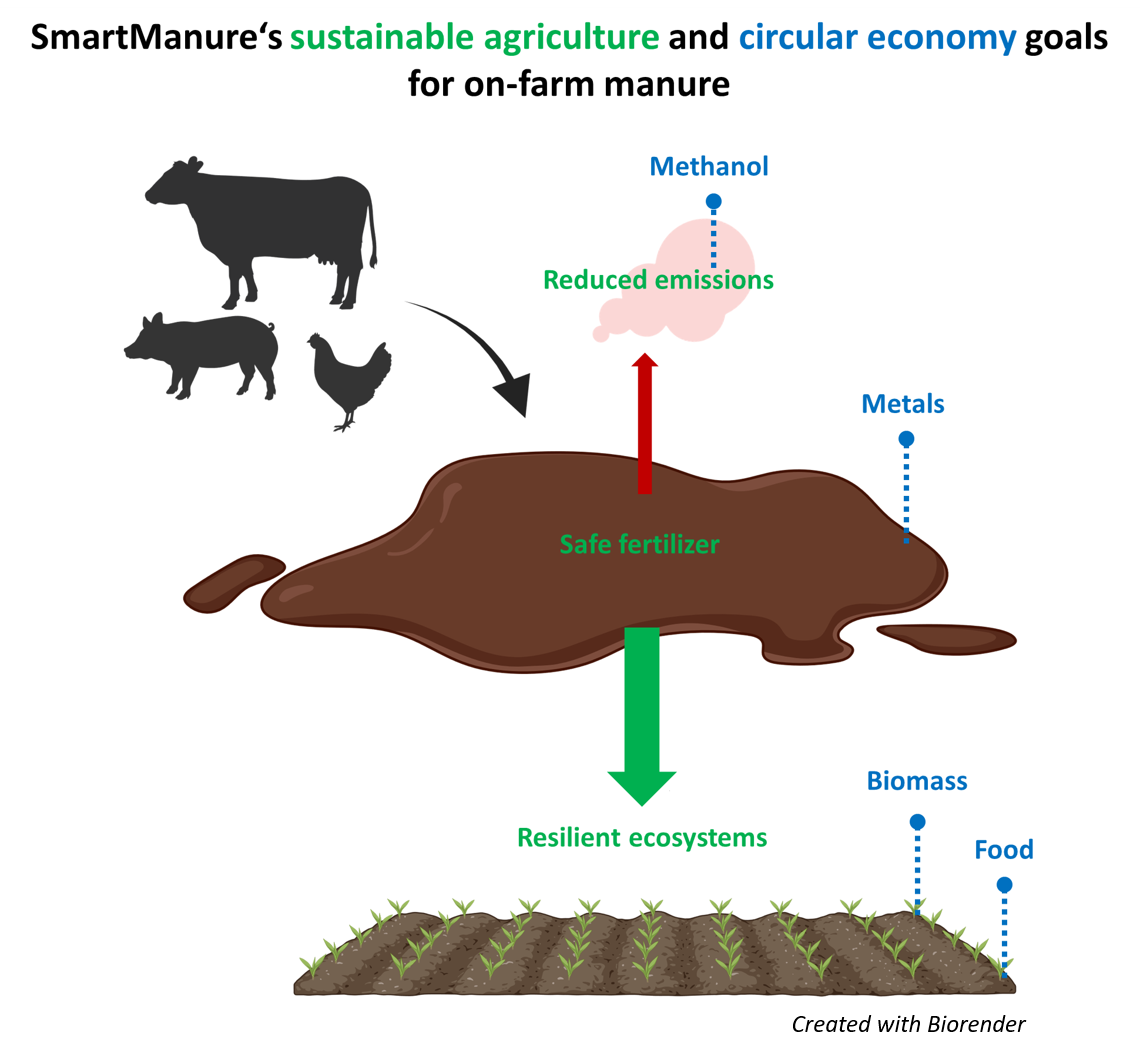
SmartManure Research
SmartManure will provide a technical concept within two PhD projects for the economic use of liquid manure during on-farm storage providing three products simultaneously: methanol and heavy metals for sale to industry, and safe fertiliser low in antibiotics for direct use on farm. The two doctoral researchers will closely collaborate to integrate their technical concepts into one single process with the potential for on-farm implementation. Two further doctoral researchers will assess impacts of liquid manure application on crop performance, microbial agroecology and soil health. They will complementarily provide solutions to minimize harmful impacts of liquid manure fertilization after soil application by growing cover crops in between seasons and simultaneously to the cash crop. Benefits of manure treatment for agriculture will be assess in a joint field trial.
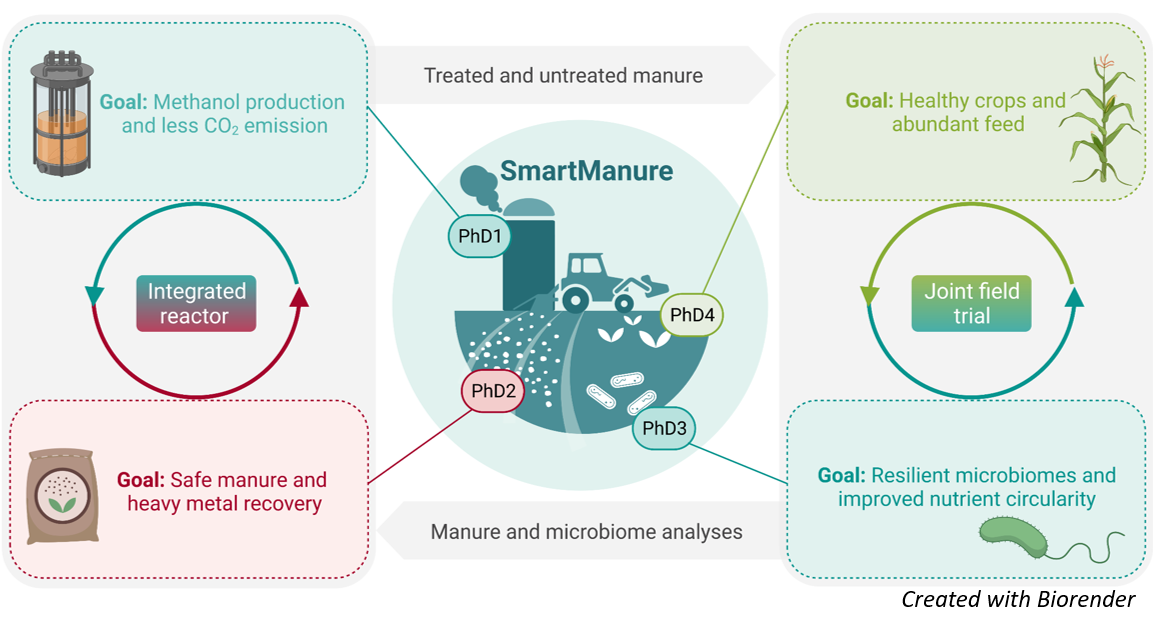
SmartManure will integrate and be advised by farmers, electrode industries and agencies. Besides the four core PhD students, all projects will be supported by associated doctoral researchers and postdocs. All doctoral researchers will be participate in the UFZ graduate school HIGRADE.
The following goals will be addressed by the four core SmartManure doctoral researchers:
PhD1 will establish a process for efficient and sustainable electrochemical conversion, hence reduction, of greenhouse gases into valuable chemicals during liquid manure storage.
Goals to be achieved:
1. Can copper-based materials be used for the selective electrochemical reduction of CO2 to methanol?
2. Can the system be scaled up to increase its future applicability?
3. Can CO2 reduction to methanol be coupled with liquid manure treatment in an integrated reactor design?
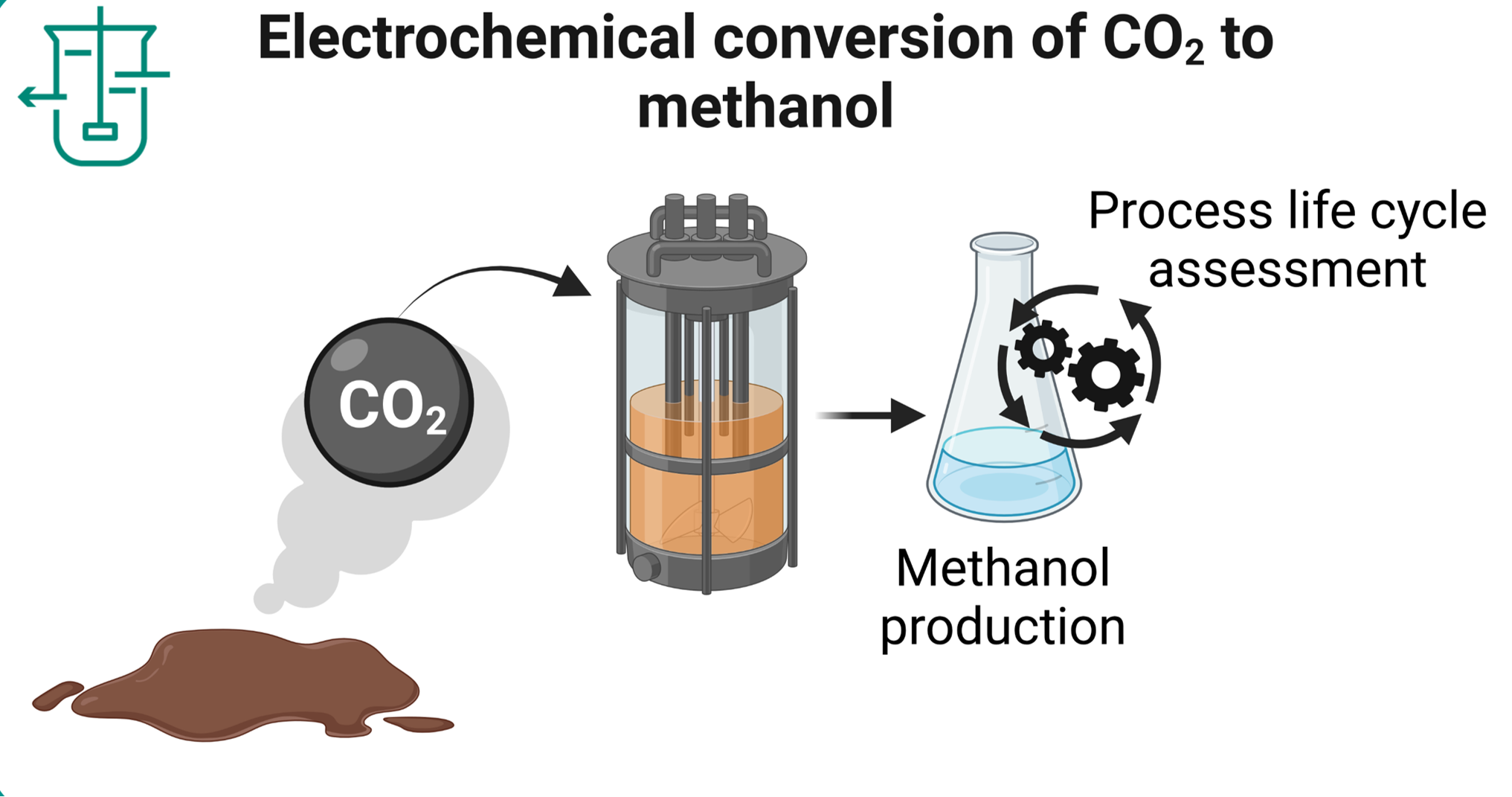
PhD student:
Mansi Saich, starting July 1, 2024
Supervising team:
Dr. Paniz Izadi (MIBITECH)
Prof. Dr. Alberto Bezama (BEN)
Steffi Hunger (UBZ)
Prof. Dr. Falk Harnisch (MIBITECH)
PhD2 will use electrosorption to remove antibiotics and heavy metals during liquid manure storage producing safe fertiliser and to (bio)electrochemically recover heavy metals.
Key questions to be solved:
1. Can electrosorption be used to simultaneously reduce both organic antibiotics and inorganic heavy metal contaminants from an artificial matrix?
2. Can the concept from WP1 be applied for the treatment of real liquid manure?
3. To which efficiency can the process developed in WP2 be integrated and optimized in a dual reactor design with the CO2-to-methanol system devised by PhD1?
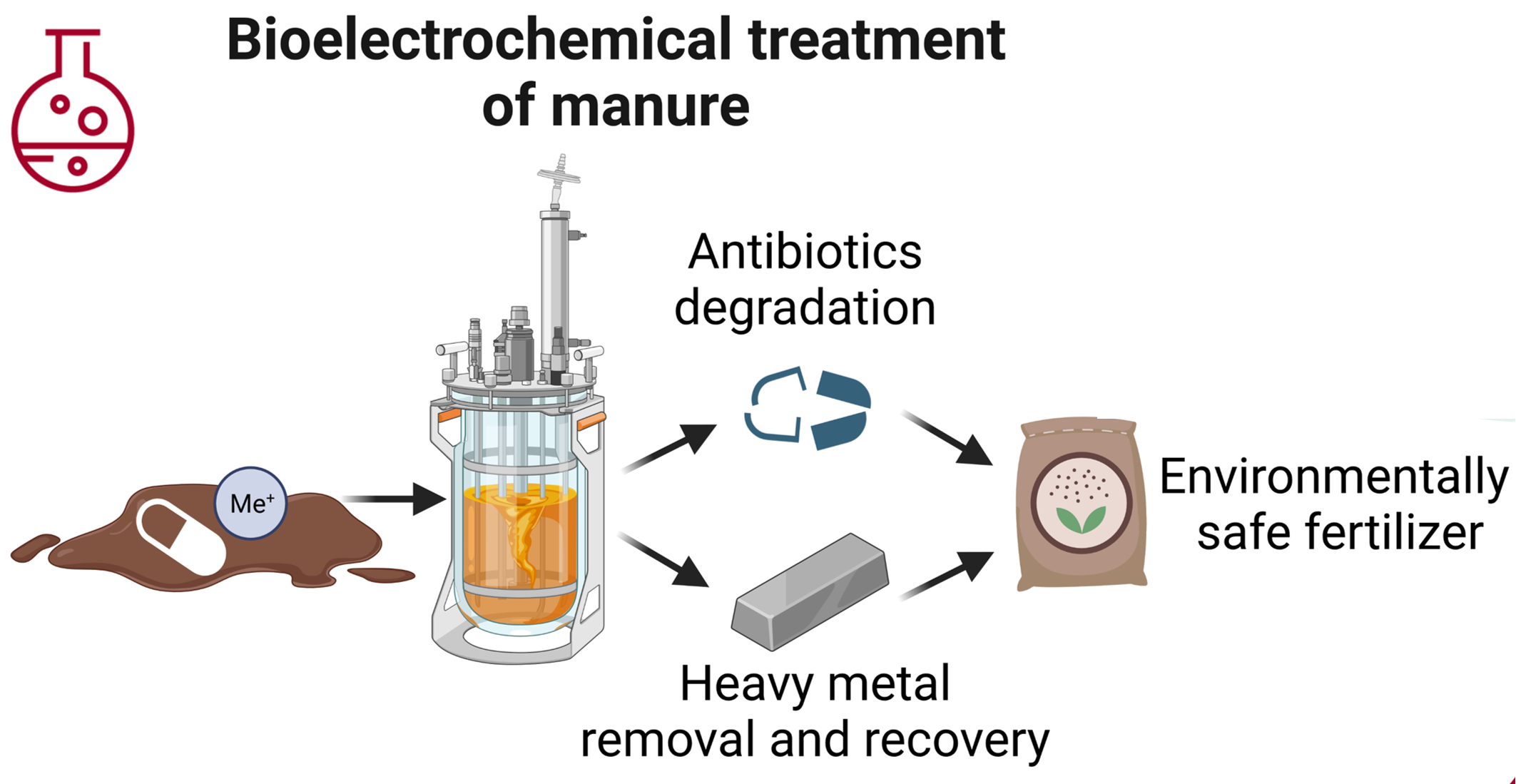
PhD student:
Florian Fischer, starting June 1, 2024
Supervisors:
Dr. Qiuguo Fu (ANA)
Dr. Benjamin Korth (MIBITECH)
Dr. Navid Saeidi (MIBITECH)
PhD3 will increase soil microbiome resilience towards manure-based hazards and simultaneously retain manure-based nutrients in the soil by growing cover crops during intermittent seasons.
Key questions to be solved:
1. Which cover crops condition the soil microbiome to higher diversity and beneficial composition?
2. Do these cover crop-mediated microbiome shifts promote the resilience of the soil microbiome to liquid manure-related hazards?
3. Do cover crops also enhance the retention of nutrients from liquid manure in the soil?
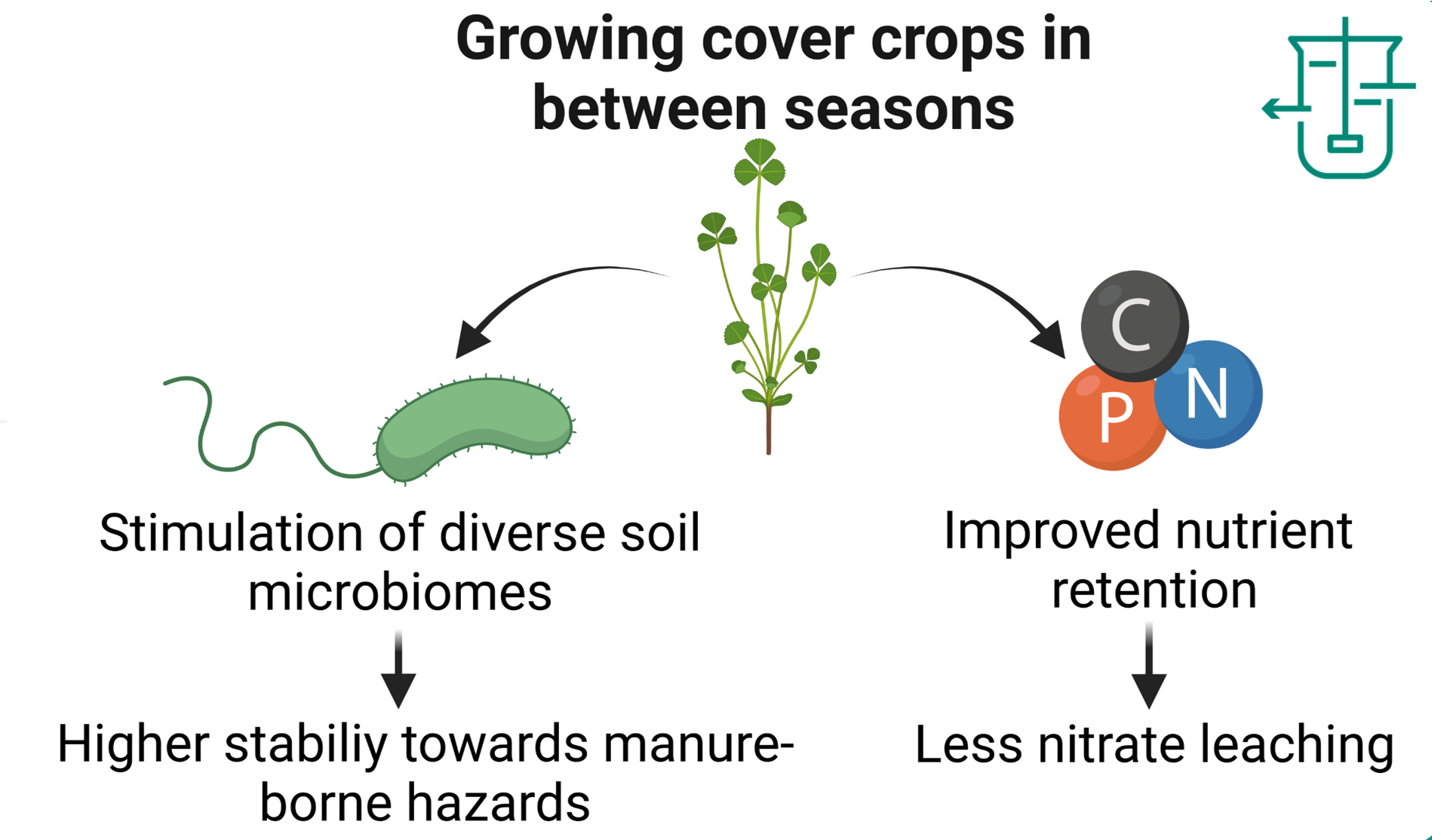
PhD student:
Lieke Lipsch, starting June 1, 2024
Supervisors:
Dr. Anja Worrich (AME)
Dr. Sara König (BOSYS)
Dr. Luis Daniel Prada Salcedo (BOOEK)
PhD4 will minimize contaminant impacts on cash crops by intercropping in liquid manure-based agriculture, providing high-quality, abundant food and intercrop-based bioenergy.
Key questions to be solved:
1. Can sunflower/clover remove considerable amounts of heavy metals from liquid manured soils?
2. Can sunflower/clover enhance the microbial degradation of antibiotics and reduce ARG spread and abundance?
3. Does intercropping corn with sunflower/clover stimulate root development and thus nutrition?
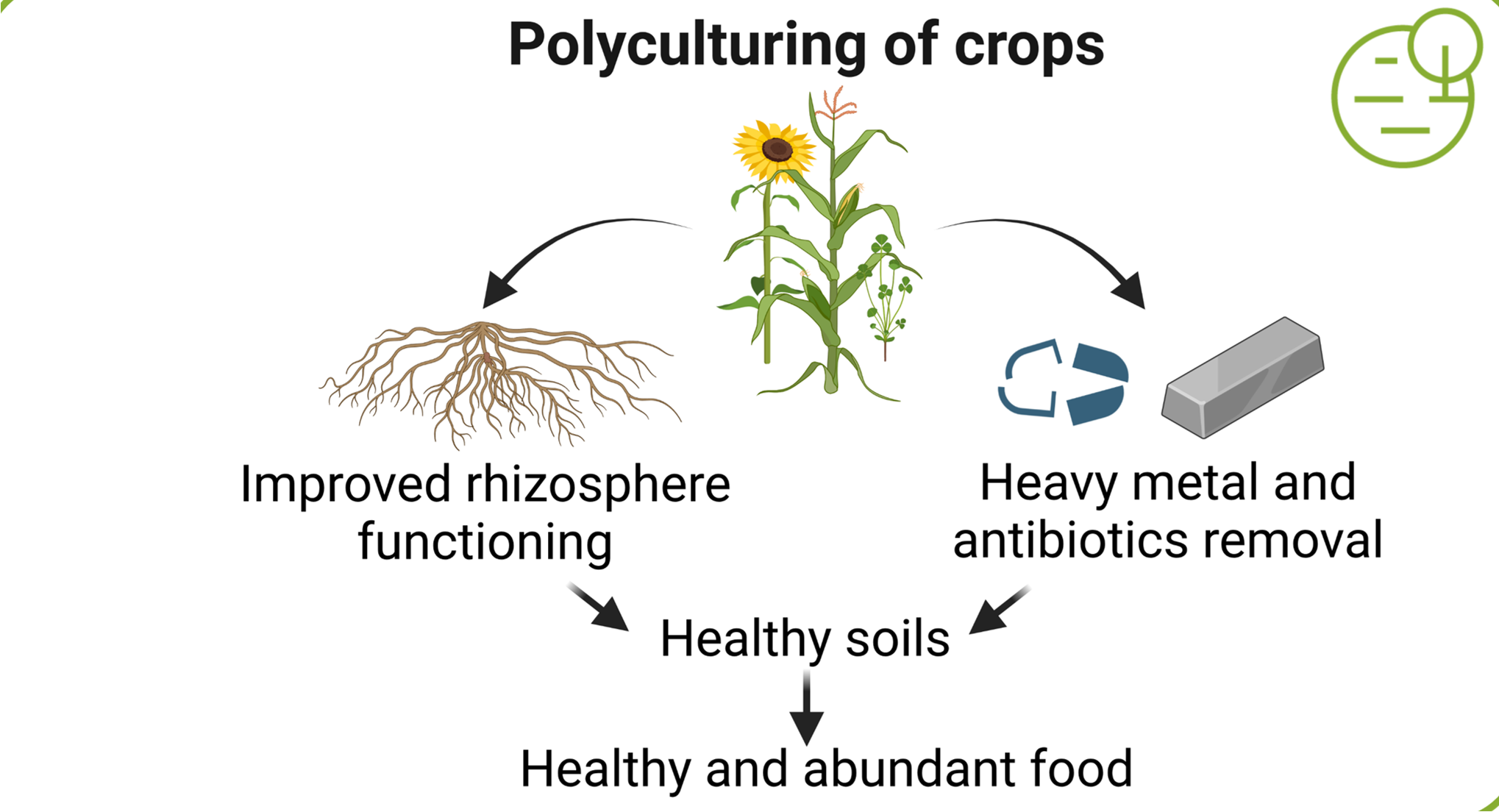
PhD student:
Lena Mellin, starting July 1, 2024
Supervising team:
Dr. Thomas Reitz (BOOEK)Ass.-Prof. Dr. Marie Muehe (AME)
Dr. Martin Herzberg (ANA)
